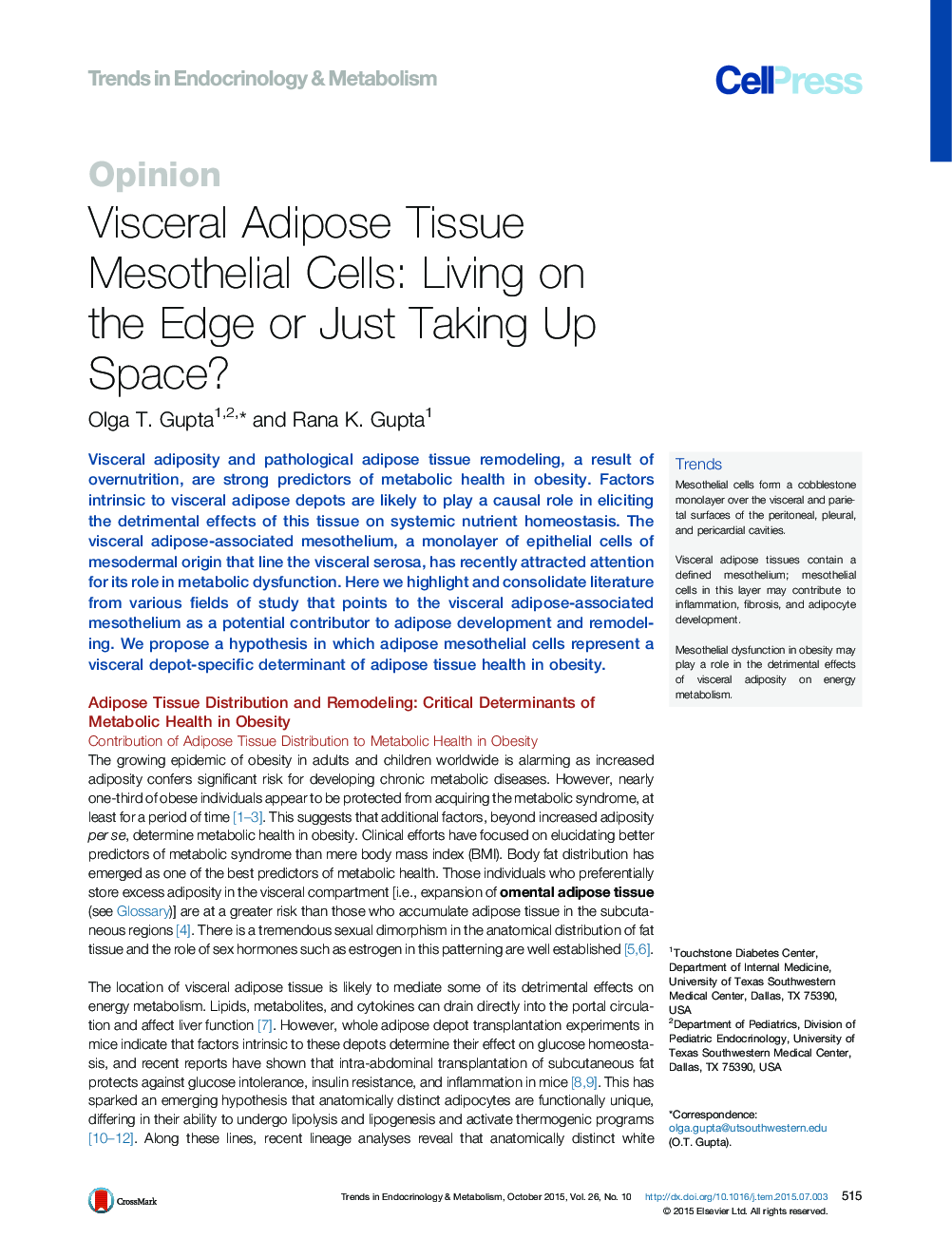| Article ID | Journal | Published Year | Pages | File Type |
|---|---|---|---|---|
| 2810161 | Trends in Endocrinology & Metabolism | 2015 | 9 Pages |
Visceral adiposity and pathological adipose tissue remodeling, a result of overnutrition, are strong predictors of metabolic health in obesity. Factors intrinsic to visceral adipose depots are likely to play a causal role in eliciting the detrimental effects of this tissue on systemic nutrient homeostasis. The visceral adipose-associated mesothelium, a monolayer of epithelial cells of mesodermal origin that line the visceral serosa, has recently attracted attention for its role in metabolic dysfunction. Here we highlight and consolidate literature from various fields of study that points to the visceral adipose-associated mesothelium as a potential contributor to adipose development and remodeling. We propose a hypothesis in which adipose mesothelial cells represent a visceral depot-specific determinant of adipose tissue health in obesity.
TrendsMesothelial cells form a cobblestone monolayer over the visceral and parietal surfaces of the peritoneal, pleural, and pericardial cavities.Visceral adipose tissues contain a defined mesothelium; mesothelial cells in this layer may contribute to inflammation, fibrosis, and adipocyte development.Mesothelial dysfunction in obesity may play a role in the detrimental effects of visceral adiposity on energy metabolism.
